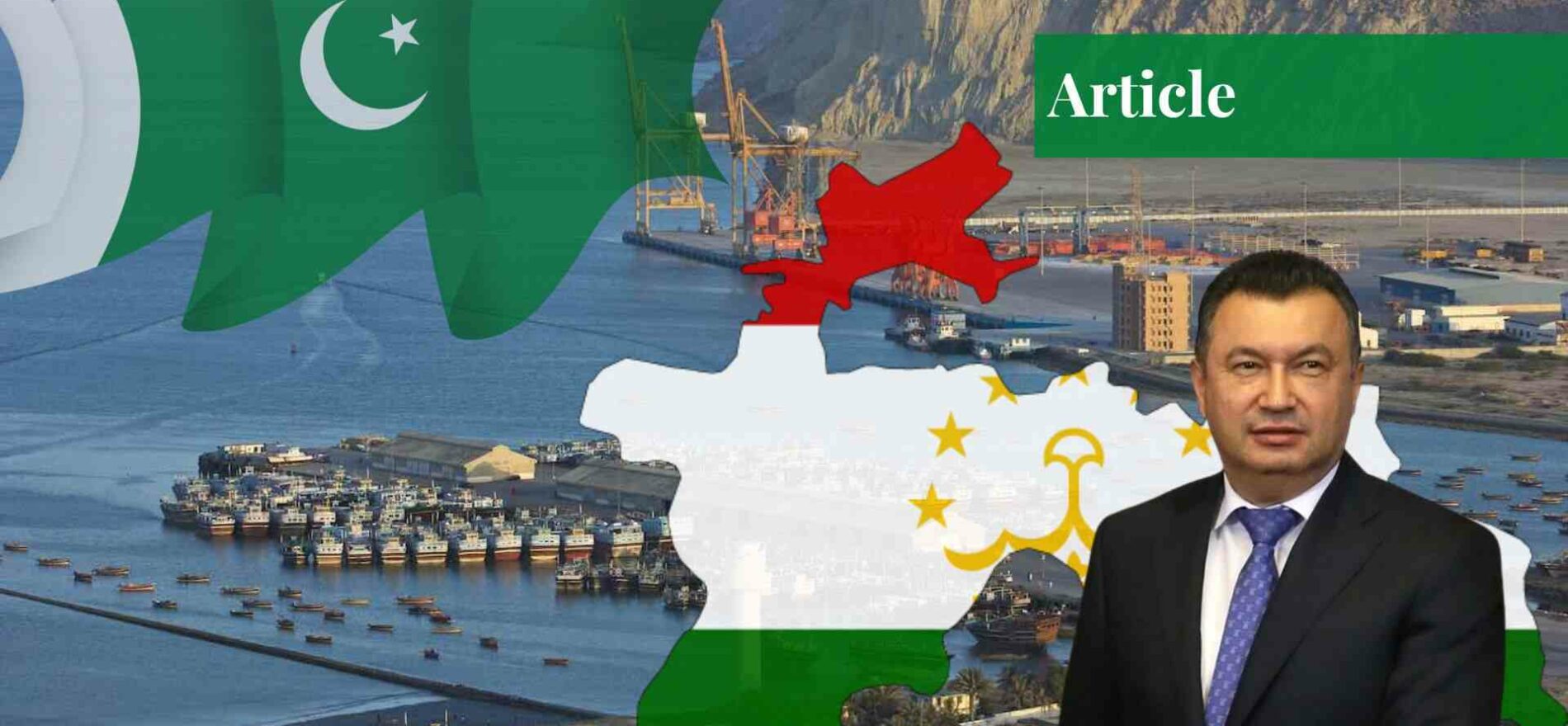Introduction
Since their inception, the Central Asian Republics have held important standing in the arena of world affairs as they are enriched with natural resources. The region could be transformed into an economic powerhouse by utilizing plentiful oil and gas resources. However, these republics have been unfortunate when it comes to the state’s accessibility to the international seas.
As landlocked countries, they are not open to the world and hence depend on other neighboring states to get access to sea routes. Being landlocked is inherently a source of economic limitation for states. These countries have to bear huge transportation and transit costs due to the remoteness of seaports.
Pakistan is all set to provide Tajikistan access to Gwadar and Karachi ports. The year 2022 will be witnessing strong bilateral relations between the two countries, owing to the sea access granted by Islamabad.
Granting Gwadar to Tajikistan
The geostrategic location of Pakistan makes it an important state to abridge both South and Central Asia. Keeping in view this fact, the Prime Minister of Pakistan Mian Muhammad Shahbaz Sharif assured President Emomali Rahmon of Tajikistan access to Gwadar. PM Sharif granted access when he was in Kazakhstan’s capital Astana on the sidelines of the Shanghai Cooperation Organization (SCO) Summit.
This will enhance the bilateral ties between Pakistan and Tajikistan, giving them a chance to improve cooperation in the fields of land and air transport. The scope of multilevel cooperation can be considerably improved as Pakistan is the only state that is simultaneously a part of two important regional organizations i.e., the Economic Cooperation Organization (ECO) and the South Asian Association for Regional Cooperation (SAARC).
Significance of Gwadar Port
Gwadar port is a warm-water deep-sea international port that is situated in Balochistan; at a distance of 533km from Karachi, 120 km from Iran, and 380 km from northwest Oman. The port is located on the Arabian Sea, at the mouth of the Persian Gulf (which runs 35% of the world trade), just outside the Strait of Hormuz.
It comprises land and sea routes that are immensely attractive for Central Asian states and other landlocked countries. The Gwadar port shrinks the distance for these Republics by approximately 50 percent as compared to the routes provided by Iran. The ports will equally benefit Pakistan by creating more job opportunities and increasing tax collection.
Moreover, former Prime Minister Imran Khan assured Uzbekistan’s Foreign Minister, Dr. Abdul-Aziz Kamilov, of complete access to Pakistani ports. Furthermore, in the words of President General Pervaiz Musharraf on June 15 2006 about the natural geographical standing of Pakistan: “Pakistan provides the natural link between the SCO states to connect the Eurasian heartland with the Arabian Sea and South Asia. We offer the critical overland routes and connectivity for mutually beneficial trade and energy transactions intra- regionally and inter-regionally”.
Gwadar: A Shortcut
Calculated from the Tajik capital of Dushanbe, Vladivostok, a major port city on the Pacific Ocean, is some 9,500 km away; Rostov-NA-Donu on the Black Sea, 4,200 km; Abadan and Bandar Abbas on the Gulf, around 3,200 km; and Karachi on the Arabian Sea about 2,700 km. Estimates of other routes put the distance between the Central Asian Republics and Gwadar port at the Arabian Sea (Pakistan) at barely 2,000 km.
Gwadar port offers several prospects to Central Asian states for the development of their socio-economic sector. Developed under China-Pakistan Economic Corridor (CPEC), this port will help boost regional trade and improve connectivity. It will provide a source for sustainable economic growth among South Asian, Middle Eastern, African, and Central Asian states.
To counter Indian influence in the region and become an energy transit corridor in South Asia and Asia-Pacific, Pakistan must maintain influence in Central Asia. In the words of Hafeez Malik, Central Asia presents Pakistan with a new security environment “freed from the nutcracker squeeze the Soviet Union had created through an alliance between Afghanistan and India.”
Conclusion
Pakistan and Tajikistan have common historical, religious, and cultural ties which can pave the way to open new and more exciting avenues of partnership between the two countries. Regardless of the present situation in Pakistan, it must see Central Asian states as golden birds that can best fulfill its interests. Thus, it is a great opportunity for Islamabad to act as an umbrella of cooperation by satisfying other states’ needs.
If you want to submit your articles and/or research papers, please check the Submissions page.
The views and opinions expressed in this article/paper are the author’s own and do not necessarily reflect the editorial position of Paradigm Shift.



















